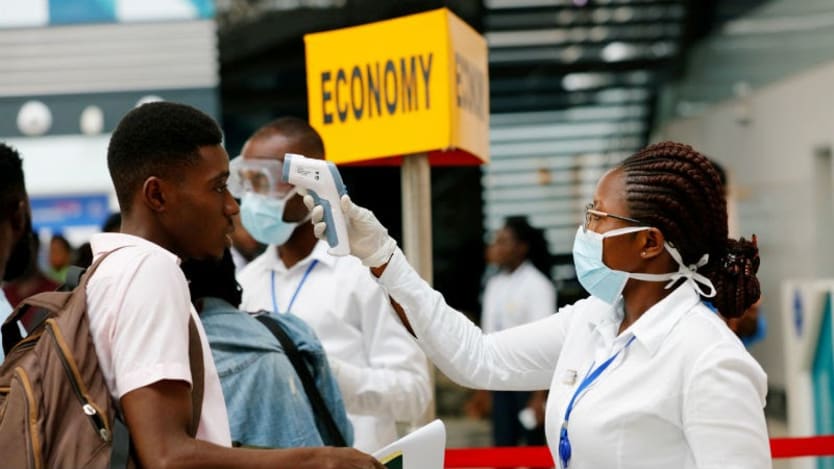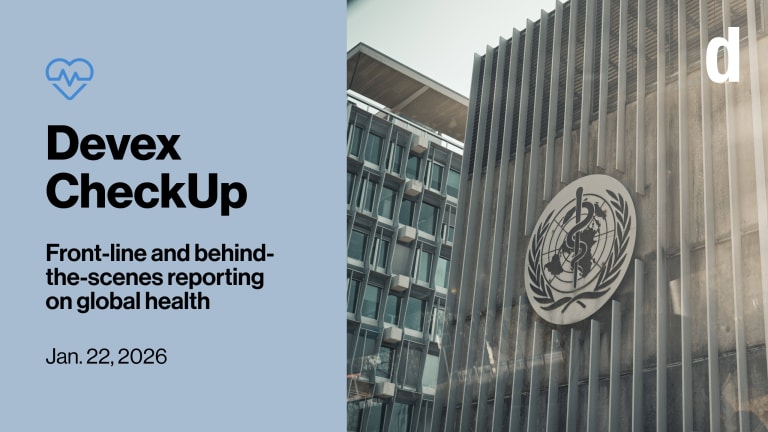
Globalization has ensured viruses know no borders, with diseases moving across the world in less than 36 hours. Since December, the novel coronavirus has spread from China, where it was first discovered, to dozens of countries in Asia, Europe, North America, and Oceania. At the time of writing, Africa is the only continent not to have a confirmed case of novel coronavirus, but Africa is also the region least prepared for epidemics globally.
More on the novel coronavirus:
► 2019-nCoV outbreak — a timeline
► Travel in the time of coronavirus
► Coronavirus: Gates gives $100 million to prevent virus spread
As Africa and China are increasingly entwined — both socially and economically — it is only a matter of time until a case is detected. Air traffic between China and Africa has increased 630% over the last decade, with airline fleets now able to transport 850,000 travelers between the two each year. In 2018, there were over 81,000 African students studying in China; currently, there are an estimated 4,600 African students in Hubei province, the epicenter of the outbreak.
In addition, roughly 1 million private Chinese citizens have arrived in Africa since 2001. Social tensions around economic inequality have continued to build between Chinese migrants and their African host communities, leading to social isolation of the migrant population.
With exported coronavirus cases from China driving the expansion of the outbreak globally, there is significant risk that fear and stigma will escalate tensions, limit control measures, and drive the spread of outbreaks in many African cities. The World Bank estimates that 90% of the economic damage from epidemics comes from people’s fear of associating with others. Public health decision-makers in Africa will need to consider the economic and social implications of their preparedness and response efforts now to avoid a health emergency that could have far reaching consequences.
Ebola, measles, Lassa fever, and more
To be prepared for any outbreak, including the novel coronavirus, countries must have robust systems to prevent, find, and stop diseases. These critical capacities include having effective systems that are able to detect, rapidly investigate, and verify new cases. They must have adequate supply chains of essential medicines and infection prevention and control equipment; trained health workers who can respond safely and are able to isolate and care for the sick; and the ability to communicate about the disease and combat misinformation quickly among all parts of the community.
After the West African Ebola epidemic from 2014-16, African countries enthusiastically volunteered for external assessments of their preparedness capacities using the World Health Organization’s Joint External Evaluation tool. According to PreventEpidemics.org, Africa is the least prepared region in the world, with an average ReadyScore of 39 out of 100, compared with the global average of 54.
Despite limited preparedness in most African countries, they are regularly tested with highly infectious disease outbreaks that occur with frightening regularity. Currently, there are 56 declared outbreaks in the WHO African region. Congo has seen over 3,300 cases and 2,200 deaths since August 2018 from the Ebola virus disease outbreak and an unprecedented measles outbreak of over 300,000 cases and 6,000 deaths since the start of 2019. This year, Uganda declared a yellow fever outbreak, and Sierra Leone, Liberia, and Nigeria have had more than 400 suspected cases of Lassa fever, with the number still climbing.
After conducting JEE assessments and with support from partners, some countries have increased their preparedness, but challenges to overstretched and under-resourced health systems have been almost relentless. Public health experts must face the task of maintaining existing response efforts to high consequence outbreaks while also ensuring they are building preparedness for the novel coronavirus.
Balancing response and preparedness
Unfortunately — or fortunately — there is little to no experience with coronaviruses in the WHO African region. Severe acute respiratory syndrome, or SARS, which sickened 8,098 worldwide by 2003, was never reported in Africa. Although there were 2,494 laboratory-confirmed cases of Middle East respiratory syndrome around the world between 2012 and 2019, the only WHO African region country to report MERS has been Algeria.
However, recent preparedness efforts to regional health threats such as Ebola virus disease will provide a sound platform for adaption to coronavirus preparedness.
Combating the spread of the virus in Africa will require countries to rapidly review current levels of preparedness and implement targeted efforts. The declaration of the outbreak as a public health emergency of international concern on Jan. 30 — only the sixth such declaration since 2009 — is a first step to ensuring international cooperation.
With regional and international support, they will need to continue to build essential capacities related to surveillance, laboratories, a trained workforce, and emergency response. This includes allocating financial and human resources to ensure they can contain imported cases and — if sustained community transmission occurs — mitigate the social, economic, and health impacts for all parts of the community.
Nonpharmaceutical interventions such as social distancing, home isolation, and hand-washing may play a pivotal role in slowing the spread, but these also rely on preparedness with early community engagement and clear communication. The international community has a significant role to play in supporting these efforts, but as the outbreak spreads and more countries are impacted, many African nations will be left to use what limited domestic capacity they currently have.
The intensified global attention on the novel coronavirus reinforces how preparedness can save lives and livelihoods. Africa faces immense challenges beyond any other region of the world, with an elevated risk of outbreaks and an abundance of preparedness gaps. It has no choice but to face the ongoing threats of measles, Ebola, cholera, Lassa, and yellow fever while preparing for what could potentially be a pandemic.
To manage ongoing outbreaks and protect lives, governments, civil society, and international partners should support investments to prepare countries for all disease outbreaks, whether common or novel.








